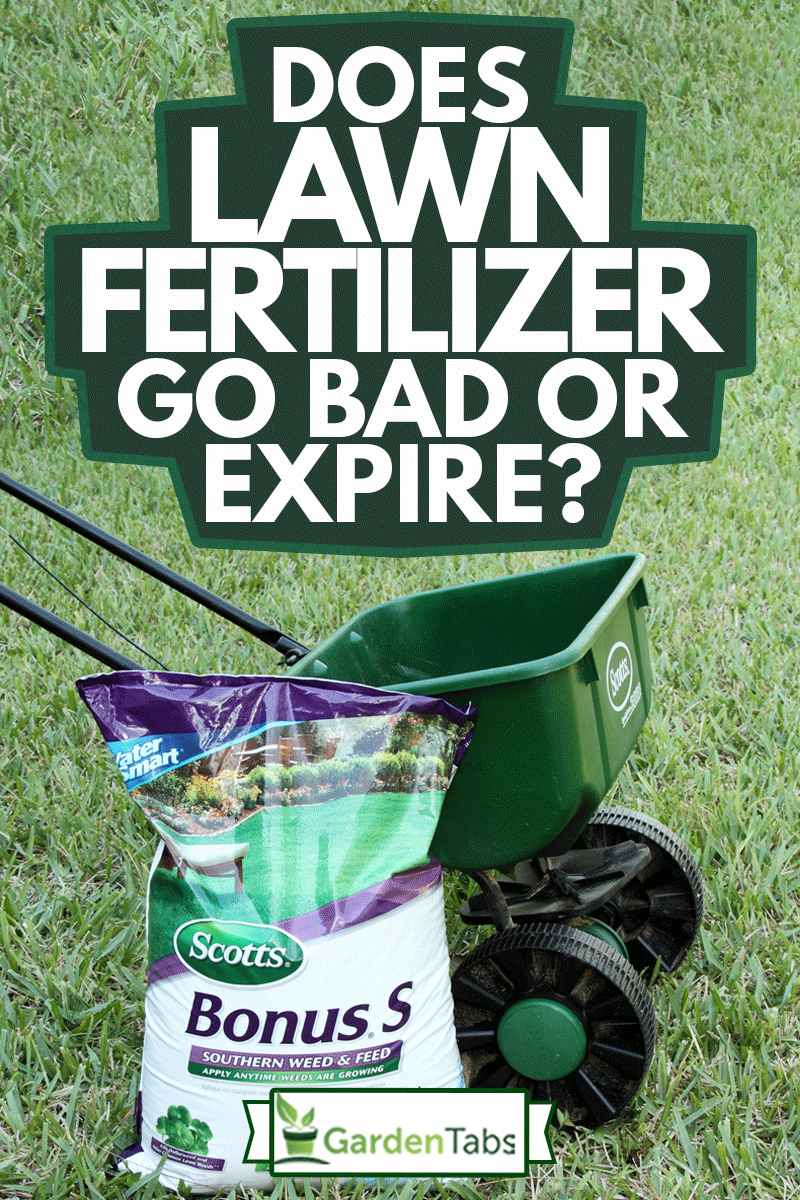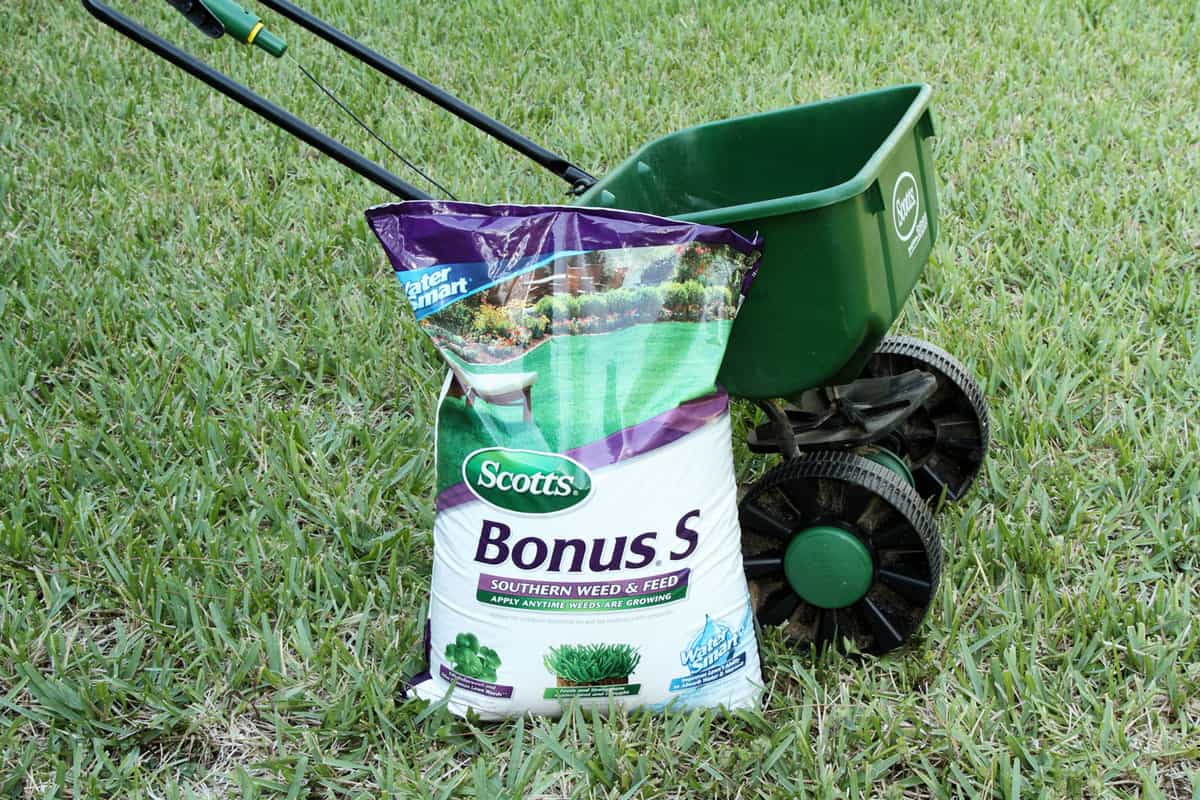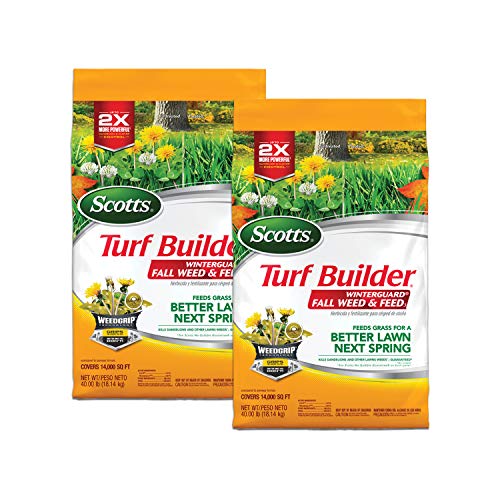Fertilizing your lawn will help it grow strong and healthy. However, if you don't use all of it in one go, you may be wondering if it will still be ok to use in the future. Well, we've researched the topic in-depth and have an answer for you.
When stored correctly, lawn fertilizer will not go bad. Also, there is usually no expiration date listed on organic lawn fertilizer, suggesting that it will not expire. The components of organic fertilizer do not break down, so the potency of the fertilizer should remain the same regardless of the amount of time that has passed unless it includes other active ingredients. If the fertilizer gets wet, it will still work. However, it may clump up and be harder to disperse on your lawn.
Now you know you will be able to use any leftover fertilizer in the future, but keep reading as we elaborate on this further. We'll go over which storage method might affect its life expectancy and at which point you should throw it away. Additionally, we'll answer some other questions you might have about lawn fertilizer.

How long is lawn fertilizer good?
Fertilizer comes in two main varieties: synthetic or organic. This means that one is comprised of natural ingredients, while the other is derived from chemicals. Maybe surprisingly, neither synthetic nor organic fertilizers go bad, especially if stored correctly.
The fertilizer's packaging should list ideal storage conditions but will typically instruct you to store the fertilizer in a cool, dry place in its original container. Keep it away from direct heat exposure and away from other chemicals that could result in a reaction if a leak or spill was to occur.
However, there are some exceptions as to whether your fertilizer will go bad. It will often depend on whether you purchase wet or dry fertilizer and whether it contains additives such as herbicides or pesticides. The following two sections will go over why this might affect your fertilizer's life.
Does dry fertilizer go bad?
If your dry fertilizer does not include herbicides or pesticides, it will last indefinitely. So, no, regular dry fertilizer will not go bad. Dry fertilizer typically contains NPK, which stands for Nitrogen, Phosphorous, and Potassium. If any herbicides or pesticides are added, they will be listed on the packaging under active ingredients.
For example, Scott's Turf Builder Winterguard Lawn Food does not list any active ingredients. However, Scott's Turfbuilder Winterguard Fall Weed & Feed lists active ingredients designed to kill and prevent weeds.
If your fertilizer does contain active ingredients, it might lose its potency over time, so it may no longer achieve what it says it will on the packaging. Also, if the dry fertilizer becomes exposed to too much moisture, Scotts says it may be more difficult to spread, which may render it useless.
Click here to see Fall Weed & Feed on Amazon.
Does wet fertilizer go bad?
Wet fertilizer, or liquid fertilizer, will typically have a shelf life of eight to ten years. You should check the packaging for any possible expiration dates. Even if the fertilizer is within its expiration date, you may need to shake it up to remix any ingredients that might have settled.
Just like dry fertilizer, liquid fertilizer can also contain active ingredients. If your liquid fertilizer does contain active ingredients, its potency may decrease over time.
Click here to see Liquid Weed & Feed on Amazon.
Is it okay to use old fertilizer?
Effectiveness
Since dry fertilizer doesn't expire, it is ok to use old bags of fertilizer you might have laying around. The organic elements that make up fertilizer, potassium, phosphorous, and nitrogen, do not break down over time. So whether the bag has been sitting there for one year or ten years, the effectiveness should be the same.
That being said, as we mentioned earlier, an old bag of fertilizer that contains additional active ingredients such as pesticides and herbicides may not be as potent as when you first bought it. That doesn't mean it will be useless for your lawn, though. Your yard could still benefit from the non-active NPK ingredients. You can treat liquid fertilizer the same. However, if it is has been sitting around for longer than eight years, it's time to toss it away.
So, fortunately, it's unlikely that old fertilizer with active ingredients will do any damage to your lawn. It just might not kill the weeds like it's supposed to. If you need a fertilizer that will kill weeds or insects, you will need to dispose of the old bags and purchase new ones.
Condition Of The Fertilizer
A factor that might affect whether it is ok for you to use the fertilizer is the condition the fertilizer is in. If you have not been storing the fertilizer correctly, it might not be a question of whether it is ok to use but whether you can use it.
See, a fertilizer that has not been stored correctly might have changed physical properties. For example, dry fertilizer is often in the form of granules. If those granules are exposed to moisture or humidity, they may clump together, making it difficult to spread.
What do you do with old fertilizers?
If you decide to purchase new fertilizer instead of using your old fertilizer, you may be wondering the best way to dispose of the old. Typically, organic fertilizer doesn't have any special requirements for disposal as it doesn't pose much danger.
However, chemical fertilizer might. Your fertilizer may contain chemicals or ingredients that are flammable, corrosive, or that might cause contamination to the environment. First, check the fertilizer's packaging. Often, disposal instructions are listed.
You can also call your local solid waste or hazardous waste disposal company. They will be able to direct you to the best method of disposal. Some companies will recommend this on the packaging of the fertilizer. Make sure to keep the fertilizer in its original container. If you can, avoid having to dispose of fertilizer by either using the product or finding someone who can.
What Not To Do
Old fertilizers should be kept far away from children or pets. You should not pour chemical fertilizer down the drain as this can lead to environmental contamination, including contamination of water supplies. Do not dispose of chemical fertilizer in your regular trash can, which can also lead to contamination.
How do you store an open bag of fertilizer?
If you cannot use all of your fertilizer, you should store it in as air-tight of a container as possible. Many people recommend using 5-gallon buckets with lids. Place the open bag of fertilizer in the 5-gallon bucket and seal it with the rubber lid. You can find 5-gallon buckets at most home DIY stores.
Click here to see 5-gallon bucket on Amazon.
How often should you fertilize your lawn?
There are varying answers out there about how often you should fertilize your lawn. The recommended number of times varies from once to twice a year to four to five times a year.
Once or Twice
If you want to boost your grass's health, fertilizer once or twice a year should be sufficient for you. If you only choose to fertilize your lawn once, the best time to fertilize your lawn is during the spring. However, fertilizers are designed for each season except winter, so another option is to fertilize your lawn multiple times a year.
More Often
Scotts, a popular company for all things yard-related, suggests fertilizing in early spring, late spring, summer, or fall, or at all four times. Your yard may need fertilizing more or less, depending on the climate you live in. You can often tell by looking at your grass whether it could use fertilizer feeding. If it looks luscious, green, and healthy, you might not need to fertilize it.
Final Thoughts

Hopefully, our article has helped explain whether your fertilizer will go bad or expire. Remember, whether it expires depends on whether the fertilizer is wet, dry, organic, or chemical and whether you store it correctly. Maybe now you feel more confident about what you should do with your old fertilizer and how you can store any that you didn't use.
For more reading, check out some of our other posts:



